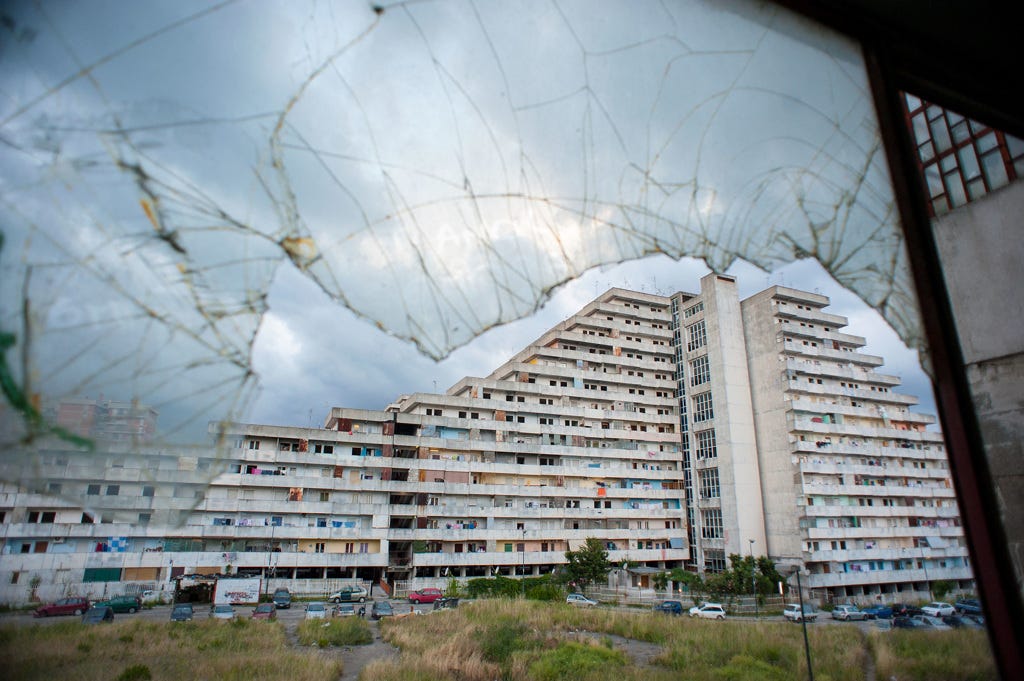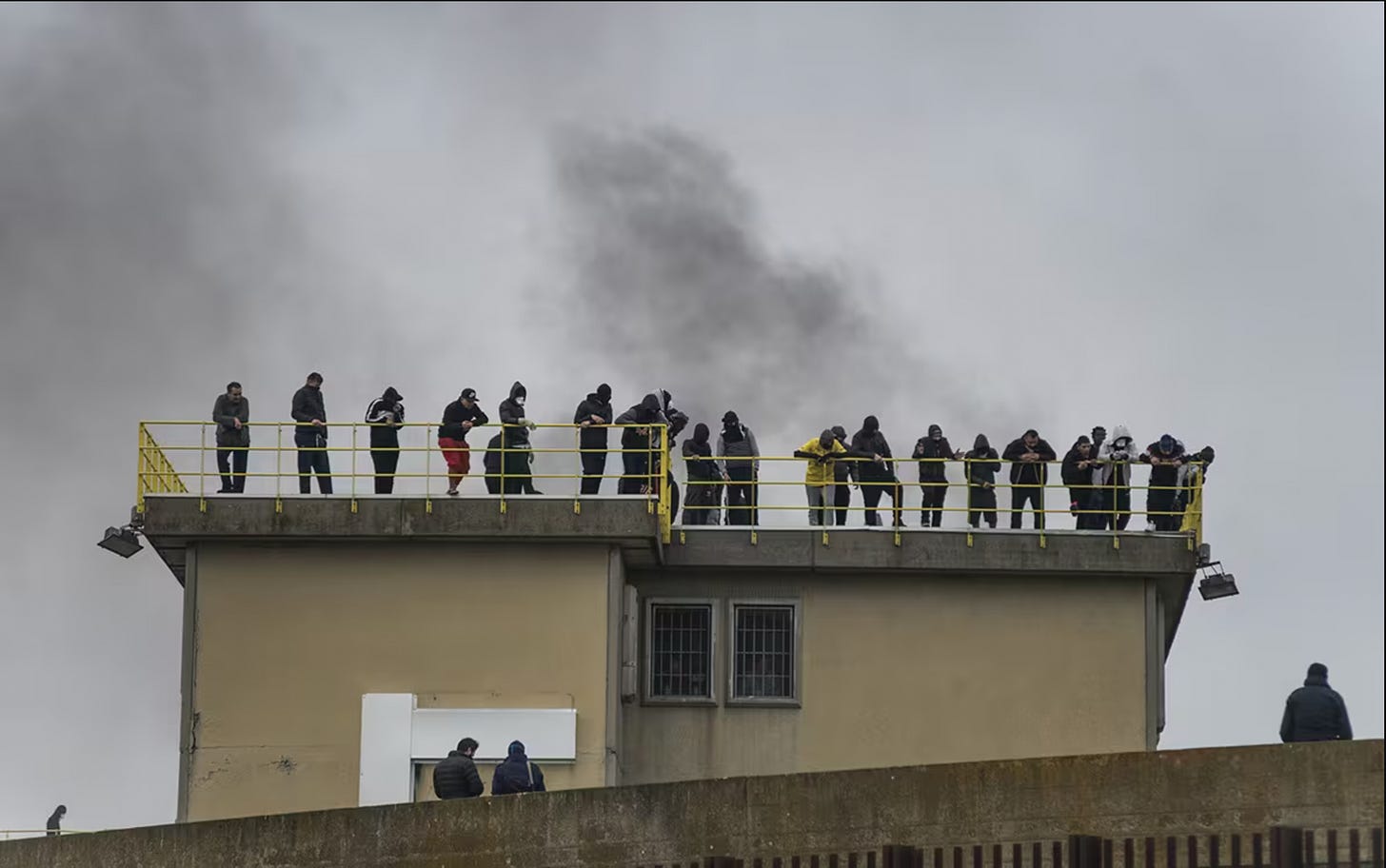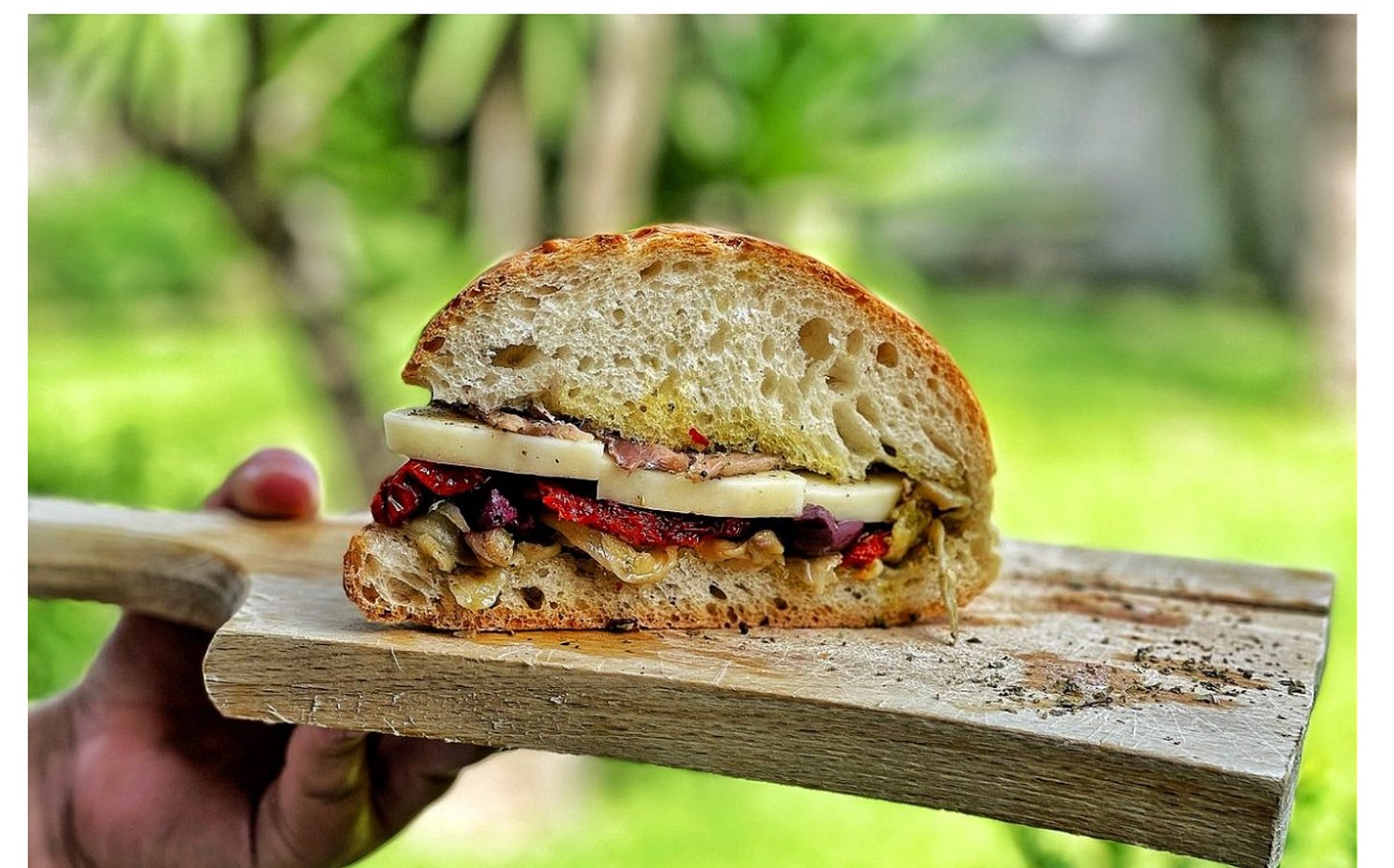Whether or not you’ve visited Naples you may be familiar with Scampia, a much stigmatised neighbourhood located to the far north of the city. First immortalized by Matteo Garrone in the 2008 film version of Gomorrah, this estate, home to 80,000 residents, has sadly become synonymous in the public imagination with criminality, drugs, mafia violence and moreorless everything that’s wrong with modern urban life. Since 2020 the local administration has been attempting to “solve” the real (and imagined) problems by demolishing the buildings one by one as part of a controversial 18m euro regeneration scheme. It was against this backdrop that disaster struck this week. Late on Monday night, a raised corridor in the Vela Celeste towerblock collapsed, killing three people and injuring 13. A further 800 people – all of whom were on a waiting list to be rehoused – have had to be evacuated and are currently residing in temporary accommodation. One’s thoughts are, of course, with the victims and the families who have so immediately suffered. There is, however, a wider political issue here, which the author Roberto Saviano eloquently summarized in an op-ed for Corriere della Sera: “The question is not why a single gallery collapsed, but why it only happened now. And why hasn’t everything come down, given the total disrepair of the structure? … I ask you [politicians] where have you been all these years? What have you done for Scampia, other than offering generic soundbites about organized crime? What have you actually done to prevent the suburbs of Naples from transforming into a ghetto? Nothing!” Click here to read the nuances of his take (ITA only I’m afraid).

More grim news this week I’m afraid, this time concerning the state of Italy’s prisons. The situation is, quite simply, an emergency on multiple fronts: the buildings are old and crumbling, the food is poor, medical and psychological support services are lacking and riots are commonplace. In the past year the issue of overcrowding has compounded all of these issues, bringing the system itself to breaking point. Italy’s prison system is legally able to hold 51,234 inmates. Today, as of June 2024, 61,480 people are in fact detained (an excess of + 135%). The consequences are predictable. 580 people have tried to take their own lives over the past six months alone. 58 inmates have succeeded, and so have six wardens. Last week Roberto Giachetti — an MP from Italia Viva — convened an emergency meeting to discuss this issue and he has launched a potentially serious attack against the current policy makers. In his words: “if the government neglects to address the state of our prisons, Rita Bernardini [Radical Party] and I will present a complaint to the Public Prosecutor's Office on the basis of article 40 of the Penal Code, which establishes that not preventing an event that one has the legal obligation to prevent is equivalent to causing it." These are serious words indeed, and, if this movement gathers legs, there may well be consequences. In the meantime — sadly — this emergency looks set to continue for the foreseeable future.

The Italian post-war co-operative was, for decades, one of the country’s most important and iconic social hubs. From the 1950s-90s these spaces were popular neighbourhood meeting points for political mobilisation, cultural activity and generally having a good time. Unlike the ARCI or the Case del Popolo, cooperative are not member-only organizations; they are more like bar-osterie, open to all with the main mission of providing food and drink at extremely low prices. Today Italy’s co-ops are in a state of decline; the regular clientele is ageing and many have been forced to close down. There are, nevertheless, a few that struggle on, and a trio of journalists — Lorenzo Villa, Bartolomeo Sala and Tommaso Serra — have published a beautiful, must-read ode to the past, present and future of these fascinating spaces in the July edition of Italy Segreta. As the authors put it “it wouldn’t be exaggerated to compare [the coops] to churches, meeting places for believers in a lay religion that [once upon a time] could rival the country’s ingrained Catholicism.” Read the full story here to find out more.
Arts and Culture: Fantasies of the Rinascimento
Franco Bernini has got a new book out this month that’s sure to be of interest for any Renaissance history fans reading. The Throne — the author’s first novel to be translated into English — is a kind of fictionalized biopic of the philosopher and political theorist Niccolo’ Machiavelli. Bernini hones in specifically on the year of 1502 and the story of Machiavelli’s fateful collaboration with his patron Cesare Borgia, who, amidst a plot to invade the Florentine republic, commissioned the now world-famous statesman to work on a mysterious writing project that drove him to the brink of insanity. Part historical fiction, part comedy and part romantic thriller, the novel depicts a world “teetering on the brink of change and revolution, as one man takes his chance at greatness, navigating the treacherous corridors of power with guile and charisma.” Critics have already – inevitably – begun likening the book to works by Umberto Eco, Hilary Mantel and Maggie O’Farrell, and based on those comparisons alone I will be picking up a copy for my August break! Buy it straight from the publisher here.
If you’re looking for something to watch over the summer you might want to check out Kathleen Jordan’s new adaptation of Boccaccio’s 1353 masterpiece The Decameron over at Netflix which looks extremely silly and (one hopes) good fun. For those unfamiliar with the source text, The Decameron is a collection of 100 interconnected stories, most of which detail the erotic hijinks of the early Renaissance Tuscans. Based on the trailer, Jordan’s adaptation leans heavily into the farcical, comedic and frankly trashy aspects of Boccaccio’s fictional world. Body humour and sex jokes are the name of the game here, so if that’s not your thing you might want to move on. Interestingly, though, having said that, Jordan also claims she’s tried to address the book’s bigger themes like “class systems, power struggles, and survival in a time of pandemic”, all of which, clearly, resonate with our times, and may, perhaps, distinguish this small screen adaptation from previous failed attempts (don’t even get me started on Jeff Baena’s cringe-inducing film The Little Hours… eek). But anyway. Check out the trailer below and let’s hope this one actually lives up to the hype.
Recipe of the week: panino alla disgraziata
I do like a good sandwich lunch, especially in the summer. And while schiacciata and focaccia will always have a special place in my increasingly Tuscanized heart I have to confess that one of my favourite such snacks to prep up is actually the Sicilian classic: pane cunzato. The traditional Palermitan version is pretty simple: sesame bread, fresh tomato, primosale cheese, anchovy and oregano. The combination of ingredients is a real joy: herbacious, salty, acidic and beguilingly Mediterranean. It’s something I always rustle up on my annual August pilgrimage to the island. This week, looking for a slight change to the usual formula, I thought I’d mix it up by trying Ada Parisi’s panino alla disgraziata: a Messina variation which adds olives, aubergine and artichoke into the mix. The result was tremendous. Make this sandwich a day in advance, as you would with a pan bagnat, to allow the flavours meld. Wrap it in some foil, pack it in a tote bag with some fruit and you’ve got yourself the perfect beach lunch. Here’s the link.
I’m Jamie Mackay, a UK-born, Italy-based writer, working at the interfaces of journalism, criticism, poetry, fiction, philosophy, travelogue and cultural-history. I set up ‘The Week in Italy’ to make a space to share a regular overview of the debates and dilemmas, innovations and crises that sometimes pass under the radar of our overcrowded news feeds, to explore politics, current affairs, books, arts and food. If you’re a regular reader, and you enjoy these updates, I hope you’ll consider becoming a supporter for EUR 5.00 per month. I like to think of it as a weekly catch-up chat over an espresso. Alternatively, if you’d like to send a one-off something, you can do so via PayPal using this link. Grazie!





